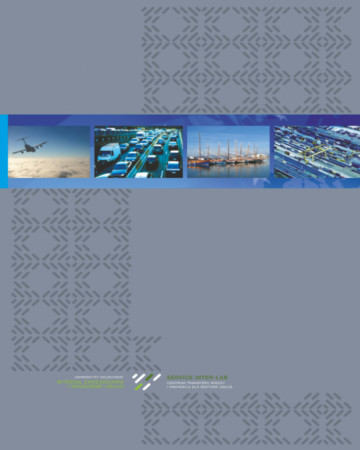
ISSN: 1644-275X
eISSN: 2353-3005
OAI
DOI: 10.18276/ptl.2016.36-05


Issue archive /
nr 4 (36) 2016
Wartość usługi dla pasażera komunikacji miejskiej - ujęcie teoretyczne
(Value of Services for Passeger in Urban Transport – Theoretical View)
| Authors: |
Zuzanna
Kłos-Adamkiewicz
Wydział Zarządzania i Ekonomiki Usług, Uniwersytet Szczeciński |
| Keywords: | transport services urban transport value of services |
| Data publikacji całości: | 2016 |
| Page range: | 8 (51-58) |
| Klasyfikacja JEL: | R41 |
Abstract
Definition of a transport service for the passenger is not easy to determine. Knowledge of transport as well as the general characteristics of transport services makes the existing definitions (that relate to the products, more than services) hard to understand. Therefore, for the purposes of the article the definitions of the value of the passenger and their understanding in the context of public transport services were presented. It was indicated that this value should be shaped primarily from the point of view of the passenger, who, with a choice of different means of transport and their specific features – choose the one which will be used for daily trips.
Download file
Article file
Bibliography
| 1. | Barnes, C., Blake, H., Pinder, D. (2011). Creating and Delivering Your Value Proposition: Managing Customer Experience for Profit. London: Kogan Page Publishers. |
| 2. | Bąkowski, W. (2010). W poszukiwaniu oceny wartości usługi w miejskiej komunikacji zbiorowej. Zeszyty Naukowe Uniwersytetu Szczecińskiego, 628, Problemy Transportu i Logistyki, 13, 219–230. |
| 3. | Bijoch, K., Redeł, S. (2000). Prawo gospodarki komunalnej. Warszawa: PWN. |
| 4. | Biznes. Słownik pojęć ekonomicznych (2006). Warszawa: PWN. |
| 5. | Blaug, M. (2000). Teoria ekonomii: ujęcie retrospektywne. Warszawa: PWN. |
| 6. | Buttle, F. (2011). Customer Relationship Management. Concepts and Technologies. Burlington, Ma: Elsevier Ltd. |
| 7. | Cole, M., Parston, G. (2006). Unlocking Public Value. A New Model for Achieving High Performance in Public Service Organizations. Hoboken, NJ: John Wiley & Sons, Inc. Publishing. |
| 8. | Dobiegała-Korona, B., Doligalski, T. (red.). (2011). Zarządzanie wartością klienta w przedsiębiorstwach w Polsce. Warszawa: Oficyna Wydawnicza SGH. |
| 9. | Downar, W. (2006). System transportowy. Kształtowanie wartości dla interesariusza. Szczecin: Wyd. Naukowe US. |
| 10. | Dyr, T. (2009). Czynniki rozwoju rynku regionalnych przewozów pasażerskich. Radom: Wyd. Politechniki Radomskiej. |
| 11. | Grzywacz, W., Burnewicz, J. (1988). Ekonomika transportu. Warszawa: Wyd. Komunikacji i Łączności. |
| 12. | Kotler, Ph. (1997). Marketing Management. Analysis, Planning, Implementation and Control. Upper Saddle River, NJ: Prentice-Hall International, Inc. |
| 13. | Monroe, K. (1990). Pricing: Making Profitable Decisions. New York: McGraw-Hill. |
| 14. | Rydzkowski, W., Wojewódzka-Król, K. (red.). (2007). Transport. Warszawa: PWN. |
| 15. | Stabryła, A. (red.). (2011). Przegląd problemów doskonalenia systemów zarządzania przedsiębiorstwem. Encyklopedia zarządzania. Kraków: Mfiles.pl. |
| 16. | Ustawa z 16.12.2010 o publicznym transporcie zbiorowym. Dz.U. 2011, nr 5, poz. 13. |
| 17. | Woodruff, R. (1997). Customer Value: The Next Source for Competitive Advantage. Journal of the Academy of Marketing Science, 25 (2), 139–153. |
| 18. | Zadora, H. (red.). (2004). Wartość w naukach ekonomicznych. Gliwice: Wyd. Politechniki Śląskiej. |
| 19. | Zeithaml, V. (1988). Consumer Perceptions of Price, Quality, and Value: A Means-End Model and Synthesis of Evidence. Journal of Marketing, 52 (3), 2–22. |